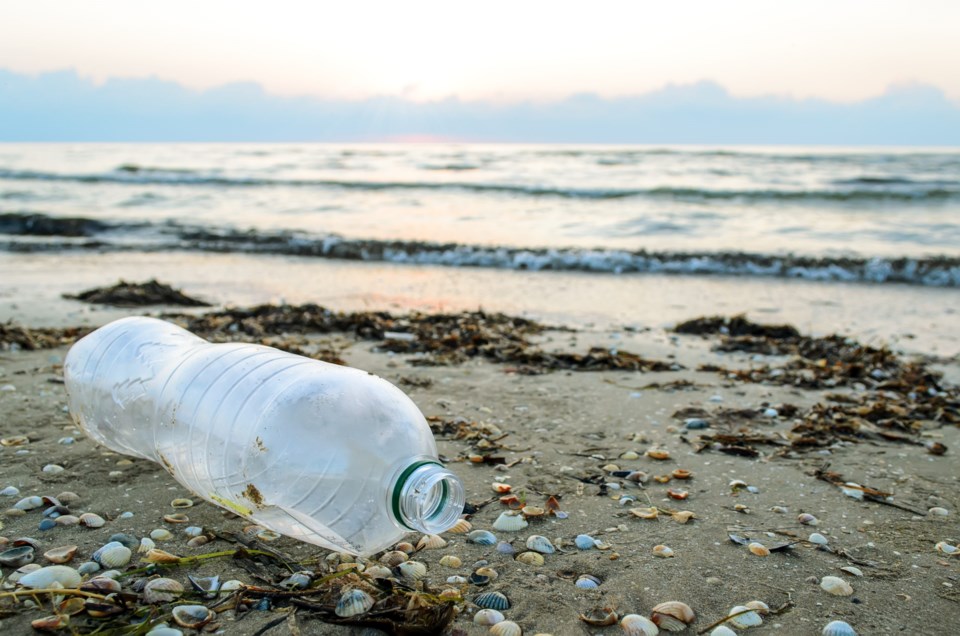Pre-COVID, our headlines were dominated by the health of our planet. Pipelines moving fossil fuels to market and the outcry over single-use plastics and trash pouring through a proverbial firehose into our oceans.
Remember Greta?
Let’s return to The Thunberg Effect for a sec.
Greta was/is important to me. Because she’s a teen, because I’m mom to a teen, and because I watched, firsthand, how teens felt empowered by her, and the phenomenon surrounding her.
How about we take a moment to find Middle on an issue that sees so many pick a polarizing and unapologetically extreme side.
It’s hard to find a compromise between the “Absolute Zero Carbon” and “Forever Fossil Fuel” sets. But the truth is British Columbians can, and do, make a massive difference on at least one aspect of helping save the planet: recycling plastics.
You’ve likely heard of Return-It recycling depots. They’re teaming up with Ocean Wise sustainable seafood. It’s a proverbial match made in heaven to try to tackle ocean waste.
These two powerful brands have joined forces on a mission to educate young British Columbians on how a few mindful daily choices can help with this huge global problem. Think global, act local.
Picking up where COVID sidetracked the world, this partnership spins Greta’s “School Strike for Climate”— sparked on August 20, 2018 — but goes into schools to arm teens with education on climate change mandates and movements.
Return It/Ocean Wise have cultivated a six-week pilot program for BC, currently piloted at three Vancouver schools. While not (yet?) a curriculum course, it’s built to foster awareness around keeping plastics from ending up on our oceans.
If I sound enthused, I am. Because once again, I’ve seen the difference in my teen, firsthand.
It’s not just stats, but significant substance offered as well. The course features expert guest expert speakers as well as assignments built to spark ideas and challenge students do personal waste audits.
It’s about learning how to close the loop on plastics – and about the cycle of recycling.
This is important. Because depending where you live, lately recycling has been getting a bad rap, with exposes in other provinces indicating much of it ends up in the landfill, or overseas.
In BC, it most certainly does not. Return-It President and CEO Allen Langdon says BC consistently recycles and makes a big difference:
“Here, roughly 75% of plastic bottles are recycled.”
“The Closing the Loop on Plastic program is about creating change leaders, offering guidelines around plastic waste,” says Langdon.
Our family is certainly more aware of our uses, our needs, since slowing down enough in 2020.
Langdon wants to see governments work together on creating consistency across Canada. The negative headlines show just how different things are from province to province — but happily, BC is doing relatively well. Don’t give up the sorting and blue bin work you’re doing!
For example, take Return-It’s “Express” depots. The most recent, at Park Royal, didn’t even need to be announced and is already running at capacity. The incentive is simple: money. Drop your recyclables in a tagged bag, enter your pin; a few days later, money is credited to your account. Once it’s over $10, your dough is e-transfered to you.
Getting high schoolers into this idea of recycling to save the oceans could be an introduction on doing work that impacts their environment – while getting paid? It’s win-win.
Instead of getting bogged down in the two solitudes, why not expand out the dialogue to focus on tangible, realistic action that can be taken by everyday people? It’s a call to truly take stock, assess our real needs, and act accordingly. Not all plastics are created equal, educating everyone makes us all part of the solution.
One example of something we’ve learned in our house: the difference between tetra packs and plastic bottles – and their place in the loop. The answer from the top: apples and oranges. Tetra packs are all about the fibre, and become tissue and toilet paper; bottles become clothing and carpets.
There are going to be the nay-sayers on any post about plastics, and to those I say: stand down. This is about being smart about what we use and having a shared goal of recycling responsibly.
We are on a path to hitting targets that are almost Greta-friendly, one young mind at a time.
Jody Vance is a born and raised Vancouverite who’s spent 30 years in both local and national media. The first woman in the history of Canadian TV to host her own sports show in primetime, since 2011 she’s been working in both TV and radio covering news and current affairs.
SWIM ON:
- Jody Vance last wrote about the latest provincial health orders, saying they're simpler than you think.
- Last June, Ada Slivinski looked at a verbal stumble by the Prime Minister, and attributed it to a different political problem.
- Anil Anand doesn't think it makes any sense - or solves any problems - to just blame the oil industry for our consumer excesses.



